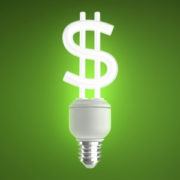We’re Doing Our Energy Accounting Wrong
Does energy from fossil fuels really cost less than renewable energy? It’s an important question, as it should be shaping our lives. But given the way we do our accounting we will never know, and won’t be able to make rational policy decisions.
The renewable energy industry is forever trying to reduce its cost of equipment, capital, and operations in order to compete with electricity costs form other sources, such as fossil fuels. It is often thought of as the ‘alternative energy’, which always seems to need tax incentives or other subsidies in order to be cost effective (even though research shows that the oil and gas companies get more than 10 times the subsidies than renewables do).
The problem here is that the US public, like most developed nations, does not pay for ALL of the costs associated with our electricity production. We do an incomplete accounting of the product cost cycle. It gets down to ‘direct’ vs ‘indirect’ costs, most of which are paid for in other ways and through other levies. By not doing the accounting correctly we fail to put natural pricing pressure on the fossil fuels. Here are a few examples:
1. Over the past 20 years we have fought several wars (2 in the oil fields of Iraq), in order to protect our ‘interests’. You can interpret as you will, but western society’s ‘interests’ in this region are primarily oil. Keeping the region stable for oil pricing and insuring a steady supply is the main geopolitical reason we fight there. But where in the price of oil at the gas pump is the cost of the war effort reflected? Where are the cost of the bullets, missiles and planes? (Leaving out the argument of human lives.)
The answer is that those costs are not reflected in your gas price. In our economic system they are considered (if considered at all) ‘indirect’ to the cost of oil, and instead we pay for them in our defense department budget through general income taxes. By doing so we deflect the ‘pressure’ of higher costs away from the pump, and don’t feel the pinch of the real cost. This keeps gas prices low and encourages our oil habit. Whether this is a purposeful policy agenda or just a simple act of bureaucratic ignorance I don’t know and will leave to your imagination.
2. When the Exxon Valdez ran aground in the ’90s, spilling its crude along the pristine Alaska sound, or when the BP offshore oil rig blew out in the Gulf of Mexico a few years ago, how did we account for the cost to the environment from just these two incidents? Where was the cost increase at the pump?
While it is true that BP paid both some fines and for some direct damages, they did NOT pay for the entire cost of the cleanup, and certainly did not pay for all of the associated environmental costs. Where is that cost reflected? Once again, we pay for many of these costs through general federal taxation to fund the EPA and it’s programs which provides both oversight and direct funding to clean up spills. Of course much of the ongoing cleanup will never even happen as the events get forgotten over time, and some environmental costs can never be monetized, leaving the earth to absorb our polution. But once again, the true costs of fossil fuels don’t seem to find their way to the pumps.
3. Have you ever tried to buy insurance for a nuclear power plant? Well, of course you haven’t, but some companies need to. At least in the US, do you know who the ultimate insurer is for our nukes? It’s Uncle Sam himself. No one writes insurance plans that will cover a nuclear catastrophe, so we basically self-insure the facilities.
I remember as a young college kid responding to a pro-nuclear article in my local paper which quoted the Rasmussen Report of the 1970’s which boldly stated that we would only have a major nuclear event every ‘20,000 reactor years’ – a seemingly safe number for public consumption. I pointed out in my rebuttal that with 1000 reactors around the world, this would lead to a major nuclear event every 20 years. It was only a few years later that 3 Mile Island melted down, and less than 20 years later that Chernoble went down. And now we have the Fukushima event in Japan. Right on schedule.
And when the next nuke melts down – and you can bet with our aging fleet of reactors that it will – who will pay the cost of cleanup and insurance coverage? You will, but not through your electric bill. You will pay for it through your taxes to the EPA and Department of Energy, which oversees our nuclear program. Where does that cost get put on the ‘price’ of electricity? It doesn’t. We don’t account for it there.
So how can the free market ever produce an effect of ‘pricing pressure’ against these energy sources and in favor of some overall less expensive alternative like the sun and wind? As someone once said, “if sunbeams were weapons of war, we would have had solar energy a long time ago”. Why do people accuse renewables as needing the support? If we did the accounting right, and wiped out ALL subsidies in their many forms, renewables would be much less costly than the alternatives.
Do I expect us to get our accounting right? No, it’s too big of a political task to rework our federal budgets and policies. But the fact remains that we need to account for ALL of the associated costs when determining our energy policies, not just some of them.
So the next time someone says to you ‘renewable forms of energy are not economical unless they receive subsidies’, set them straight. And if energy prices go up because we are shifting to sustainable sources, you’ll know that we should theoretically be saving some money on taxes – but that’s another discussion.





